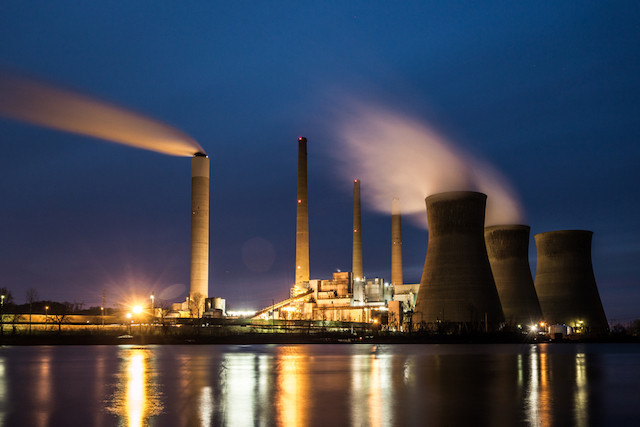The level of climate-warming carbon dioxide (CO2) in the atmosphere is forecast to rise by a near-record amount in 2019, according to the Met Office. The increase is being fuelled by the continued burning of fossil fuels and the destruction of forests, and will be particularly high in 2019 due to an expected return towards El Niño-like conditions.
This natural climate variation causes warm and dry conditions in the tropics, meaning the plant growth that removes CO2 from the air is restricted. Levels of the greenhouse gas have not been as high as today for 3-5m years, when the global temperature was 2-3C warmer and the sea level was 10-20 metres higher. Climate action must be increased fivefold to limit warming to the 1.5°C rise above pre-industrial levels that scientists advise, according to the UN.
But the past four years have been the hottest on record and global emissions are rising again after a brief pause. “Looking at the monthly figures, it’s as if you can see the planet ‘breathing’ as the levels of CO2 fall and rise with the seasonal cycle of plant growth and decay in the northern hemisphere,” said Prof Richard Betts, at the Met Office’s Hadley Centre.
“The graph is a thing of beauty, but also a stark reminder of human impact on climate. Each year’s CO2 is higher than the last, and this will keep happening until humans stop adding CO2 to the atmosphere.”
“This news is worrying and compelling,” said Prof Nick Ostle, at Lancaster University. “It represents a call to innovate with rapid and radical responses to offset these growing emissions.” He said cuts in fossil fuel use, deforestation and emissions from livestock were needed: “It’s a massive challenge but there are real opportunities to make an impact individually and globally.”
Global CO2 rise since 1956
The Met Office has a good record of forecasting global CO2 levels and predicts that the average rise over 2019 will be 2.75 parts per million (ppm). That would put it among the highest annual rises in the 62 years since good records began. Only years with strong El Niño events, 1998 and 2016, are likely to be higher.
The rise in 2016 was 3.39ppm. In the decade after the first measurement on the Hawaiian volcano Mauna Loa in 1956, annual rises were less than 0.9ppm per year. An El Niño event occurs when the tropical Pacific swings into a warm phase, causing many regions to have warmer and drier weather.
Trees and plants are natural carbon sinks because they absorb CO2 as they grow, but this is reduced in El Niño years. “This year we expect these carbon sinks to be relatively weak, so the impact of record high human-caused emissions will be larger than last year,” said Betts.
The Met Office forecasts an average CO2 level in 2019 of 411ppm. Monthly averages are expected to peak at 415ppm in May, before the growing season temporarily reduces levels to 408ppm in September, when CO2 will begin rising once again. The level of CO2 in the atmosphere before the industrial revolution sparked the large-scale burning of coal, oil and gas was 280ppm.
“It never rains but it pours,” said Prof Dave Reay, at the University of Edinburgh. “Our own CO2 emissions are still increasing, and now the world’s natural carbon sinks are set for a bad year too. We know these sinks have been mopping up around half of all our emissions to date. We can only hope their faltering in 2019 is just a short-term blip, as without their help any chance of a safer climate future will turn to dust.”
Prof Jos Barlow, also at Lancaster University, said the rising destruction of forests is serious concern: “This has been a particularly bad year. Deforestation in the Brazilian Amazon increased to around 8,000 square kilometres in 2018, which is equivalent to losing a football pitch of forest every 30 seconds. There are also worrying signs that deforestation is occurring at a faster rate in other Amazonian countries, such as Colombia, Bolivia and Peru.”
By Damian Carrington
